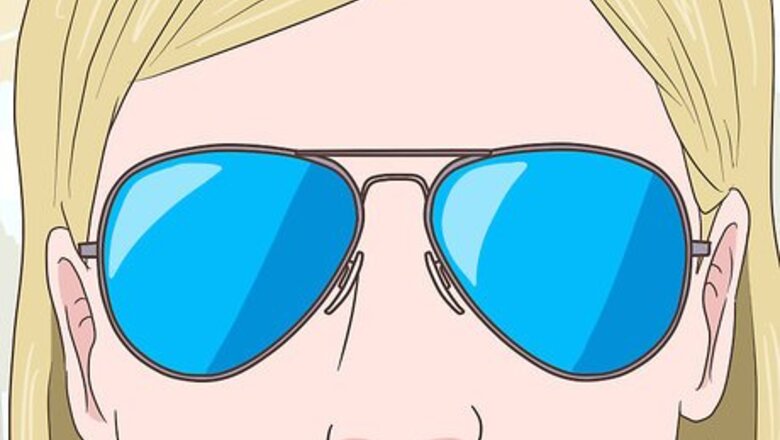
views
Protecting From Warm Weather
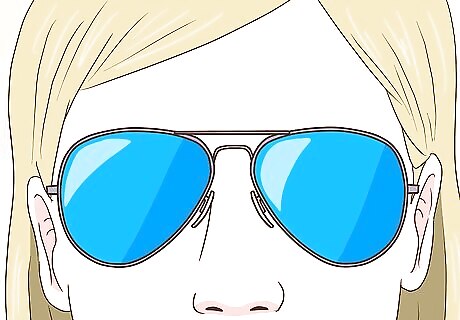
Wear appropriate clothing. Covering up your body is one of the essential tips to prevent sunburn. Clothing that is usually tightly woven is the best fabric for when the sun is out because unlike light fabrics, it makes it harder for the rays to pierce through to your skin. Choose clothing colors that won’t absorb UV rays - the more vivid the color of the fabric the greater the protection. Avoid black clothing as they absorb sunlight and rays. Accessories such as sunglasses and hats can add additional protection from the harmful UV rays. Any type of clothing or accessory that can keep the sun from directly touching your skin is essential for protection. Acquire sunglasses with a UV protection of at least 75-90% of visible light and make sure they block 99-100% of UVA and UVB rays. Polycarbonate lenses provide the protection needed while being comfortable at the same time.
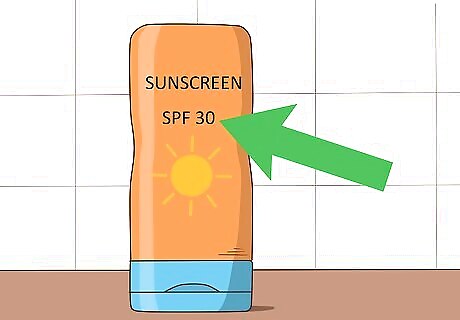
Wear sunscreen. Sunscreen is crucial for protecting the skin from the damaging UV rays of the sun. Not only does it protect the skin from sunburns, but it also reduces the risk of skin cancer, aging, and discoloration, including the appearance of dark spots. It should be applied all-year round including on cloudy days. Sunscreen should be applied at least 15 minutes before stepping outside because it needs to be absorbed into the skin appropriately. Look for sunscreen that protects against UVA & UVB rays, the label on the packaging should include the words "broad spectrum." Choose a sunscreen with a high SPF. SPF is a relative measure of how well it protects the skin from the rays. The recommended SPF is 30. Use water resistant sunscreen especially for swimming or excessive sweating. Keep reapplying every 2 hours.
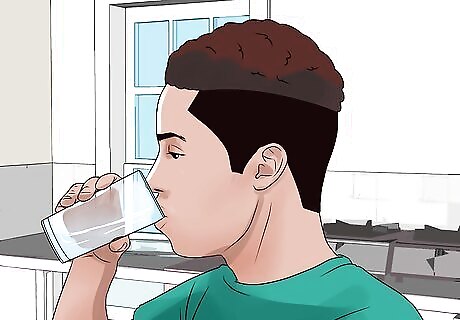
Stay hydrated. In general, drinking plenty of water is important, but especially on humid days you need to increase the amount of water you obtain. When a sunburn occurs, it draws the fluid away from the body, so drinking extra will be help prevent dehydration. The more water intake, the more the skin will be naturally protected from sunburns.
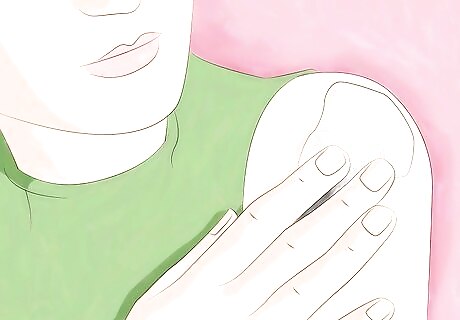
Use moisturizer. Hot weather can ultimately dry out the skin which leads to burning quicker. Using the appropriate moisturizer which includes a broad-spectrum sunscreen can easily hydrate your skin. Exfoliating before moisturizer is the most effective way because the humidity and heat can damage the external surface of the skin, so exfoliating will get rid of the dead skin cells.

Check the forecast. Checking the forecast in advanced is important to avoid harming your skin from the sun. Knowing the UV index before stepping outdoors is essential even on cloudy days. The UV index is helpful to check because it’s a tool used for reducing the exposure to UV radiation: 0-2: Low risk from unprotected sun exposure 3-5: Moderate risk from unprotected sun exposure 6-7: High risk of harm from unprotected sun exposure 8-10: Very high risk of harm from unprotected sun exposure 11 or more: Extreme risk of harm from unprotected sun exposure
Managing Damaged Skin
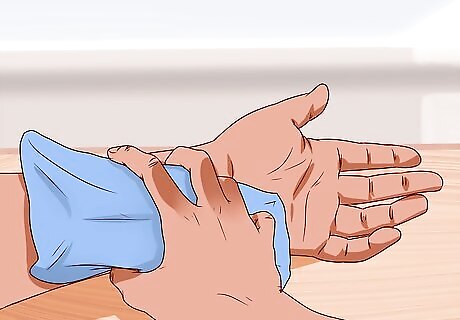
Cool the skin. Putting a cold compress or showering in cold water can soothe the pain of the damaged skin. Don’t apply ice directly onto the sunburned skin because this can lead to drying up the skin. Not only will it dry up the skin but can also slow down the healing process. Taking frequent cool baths or showers will help relieve the pain because it will absorb the heat from the burn.
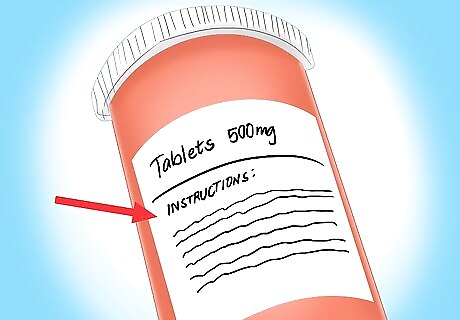
Take medication. If you can do so, then it is recommended to take a non-steroidal anti-inflammatory medication to reduce swelling, redness, and discomfort pain. This can include aspirin, ibuprofen, and naproxen. While this can relieve the pain from the inside of the body, you can also apply over-the-counter hydrocortisone cream to help reduce the itching and swelling of the sunburn.
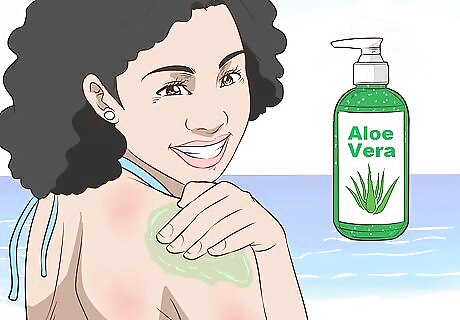
Apply aloe Vera. If you do not like taking medication, a natural remedy is to apply aloe Vera to the inflamed area. Aloe Vera helps from minor to mild burns. Applying aloe Vera gel will help soothe the pain and make the rash go away quicker. For increased pain reliever, it is recommended that you put the aloe Vera in a refrigerated area to help the burning sensation. You can apply the gel to the sunburned area at least 5-6 times a day for about a week.
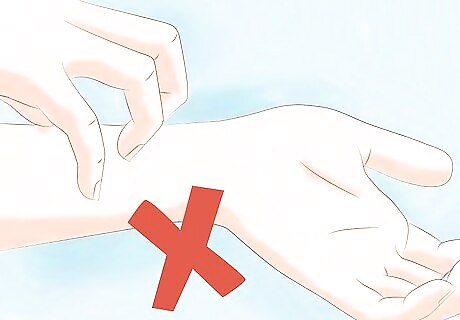
Do not pick at sunburned skin. It is extremely important for fast heeling if you not pick on peeling skin or blisters. Popping small blisters can create further problems such as an infection or rashes. If the blister is popped, just simply clean the area with mild soap and water. Within the healing process, it is normal for the skin to peel - just continue to use moisturizer to avoid excess dead skin. Protecting blisters and skin will lead to a faster recovery of sunburned skin and avoid scarring.
Knowing What to Avoid

Minimize sun exposure. It is best to minimize further sun exposure to prevent sunburns or worsen the burn. While the sunburn is healing, it's extra important to protect it from the harmful UV rays that had caused it. Staying in the shade, wearing protective clothing and applying extra sunscreen is a known if you must be in the sun. To protect against the sun ray’s, it is recommended to avoid stepping outdoors between 10 AM – 4 PM because that’s when the rays are the strongest. If you are outside during that time interval them seek as much shade as possible.
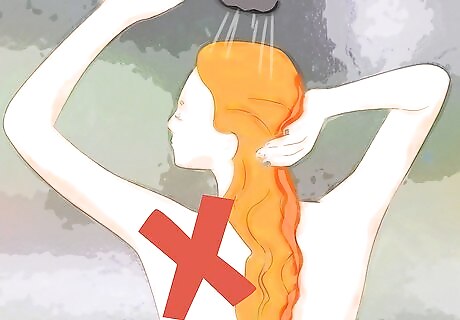
Avoid irritants. Anything with the ingredient petroleum should be avoided because it traps in the heat which can lead to more pain. Avoid hot tubs or showers, since this can only add to the pain. Hot showers can dry out the skin and slow down the healing process. Water with an extremely high temperature can lead to addition of blistering and/or peeling skin. The most important irritant to avoid is the sun itself because this can worsen and prolong the sunburn as well.
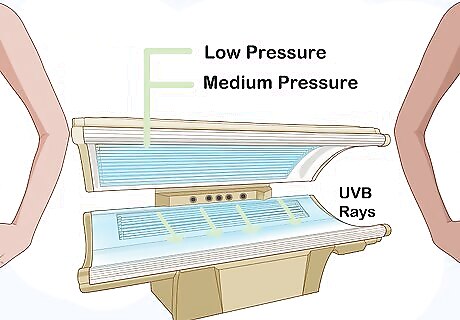
Stay away from tanning beds. Tanning in general can lead to skin cancer and aging of the skin. Tanning beds emit UVA rays which won’t speed up the healing process. There is a myth that tanning beds help prevent sunburn, but the long-term affect outweighs the benefits of getting a sunburn. A couple of sessions in the tanning bed shouldn’t be used as protection from a sunburn because a base tan is not a replacement to avoid one.
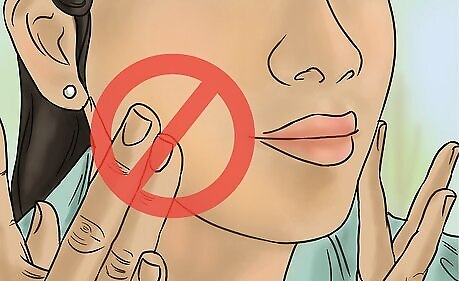
Avoid makeup. Damaged skin needs to be healed properly with time. Applying makeup with harsh chemicals and substances can cause the skin to become itchy, dried out, and more inflamed. The fewer the chemicals, the better for the skin. If there is an open wound, nothing should be applied on top of it except medication to help heal. If makeup is applied to a punctured blister, it can lead to rashes and possibly an infection.
















Comments
0 comment